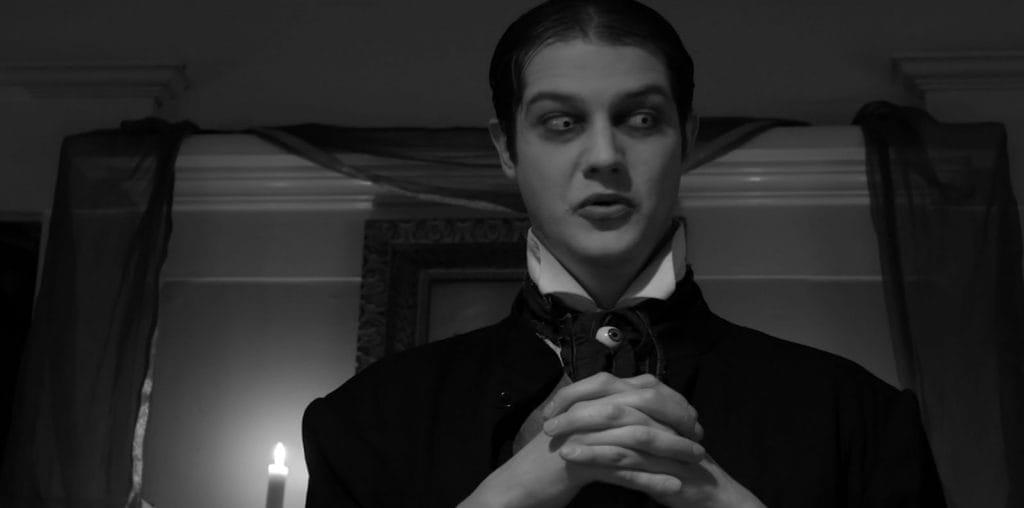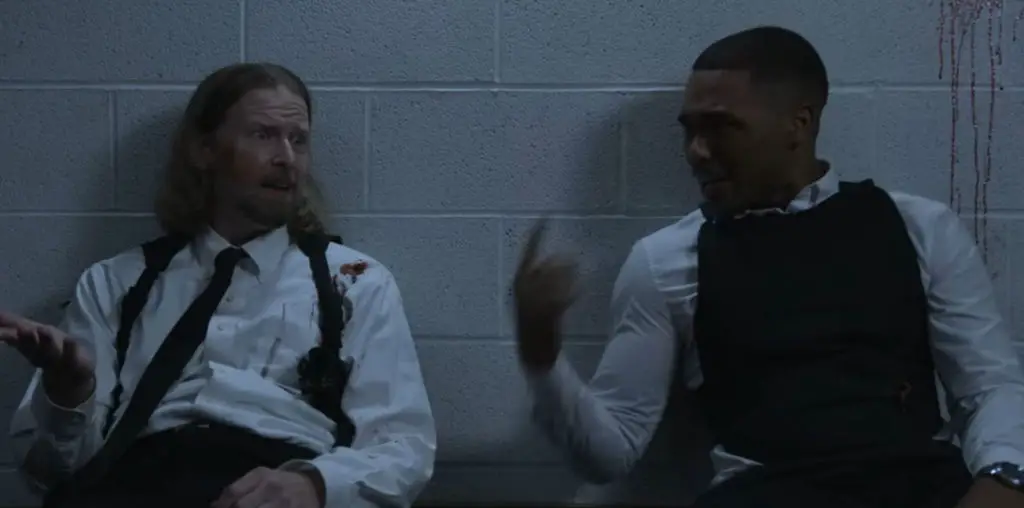
“I like to remember things my own way.” – Bill Pullman as Fred Madison
Three days before meeting co-screenwriter Barry Gifford, I sat down to watch David Lynch’s “Lost Highway.” The French daily newspaper, Le Monde, dedicated three pages to its release and declared it the best film Lynch has ever made. As for myself, I can’t really deliver a review, just an interpretation. Describing the plot is only slightly easier than describing the plot to “Eraserhead,” and in both cases it’s beside the point.
In the original press kit for “Lost Highway,” director David Lynch describes his film only as a “psychogenic fugue.” This is the term for the psychological state of a person who suddenly takes on a completely different personality, associations, and history. They, in effect, change into someone else.
In this case, death row cell mate Fred Madison (Bill Pullman) disappears to be replaced by young auto mechanic Pete Dayton (Balthazar Getty). Pete has a different family, different friends, but strange parallels to Fred’s life. Pete seems to be all the things Fred wishes he could be. Each apparently has the same people (with different names) disturbing their lives.
Over a year ago, I ran into Lynch’s daughter, Jennifer, and her husband, Skip. Skip had just finished working on location shooting in the desert with the Sr. Lynch. Lamenting the critical reaction to her own film, “Boxing Helena,” she described that growing up, her family entertained themselves with each other’s dreams. “What goes on in your head should be just as valid as what actually happens to you,” Jennifer said. This seems to be the key to both “Fire Walk With Me” and “Lost Highway.” In each film, a character’s mind creates a new reality to replace one they can no longer stand. In “Lost Highway,” though, you have to decide who that character is.
Barry Gifford wrote “Lost Highway” with Lynch, the original “Wild at Heart” novel and segments for the little seen Lynch television project “Hotel Room”. This makes it surprising to hear the number of negative comments Gifford has made about Lynch’s films. While claiming to have been misquoted, this began with his own 1988 book of film impressions, “The Devil Thumbs a Ride”. Gifford refers to “Blue Velvet” as, “One cut above a snuff film.” Not much room for misinterpretation there. While the book contains first impressions of movies written immediately after viewing, the writer now states, “I kept falling asleep the [first time] and waking up startled. I didn’t realize what was going on as far as the effect it had upon you.”
Gifford’s nearly completed manuscript to “Wild at Heart” later fell into Lynch’s hands while working on “Twin Peaks.” Whatever he might have said originally, he now reflects on the movie as, ” . . . like a big dark musical comedy; kind of like an Indian movie.”
“Lost Highway” was inspired by a line from Gifford’s “Night People,” “We’re justa couple of Apaches riding wild on the lost highway.” While the director thought of adapting one of the novellas from the book, the writer said, “Let’s do something original. Lynch just happened to have an idea. What if a person woke up one day, and was a totally different person? It’s Kafka, The Metamorphosis.”
“We realized we didn’t want to make something that was linear, and that’s why the Moebius strip [as the film’s structure]. A Moebius strip is a long strip of paper curved initially into a circle, but with one end flipped over. The strip now has only one side that flips both inside and outside the shape.” Gifford continues, “It made it easier to explain things to ourselves and keeping it straightforward. The story folds back underneath itself and continues.”
There are almost no distinctions made in “Lost Highway” between what a character perceives and actually sees. There is no nudge to the audience to say, “This isn’t real.”
“People have to realize it’s good to be baffled. It makes you think. YOU have to bring something to the party. It’s not like lying back and being f—ed. The film forces you to be involved.”
“We’re going in and out of reality, into a kind of irreality. When you enter into a movie theater, you are entering a dream state. You give yourself over and you drown.”
Check out FILMTHREAT.com’s INTERVIEW ARCHIVES and read hundreds of fascinating in-depth interviews with directors, filmmakers, actors and celebrities from the world of film!

